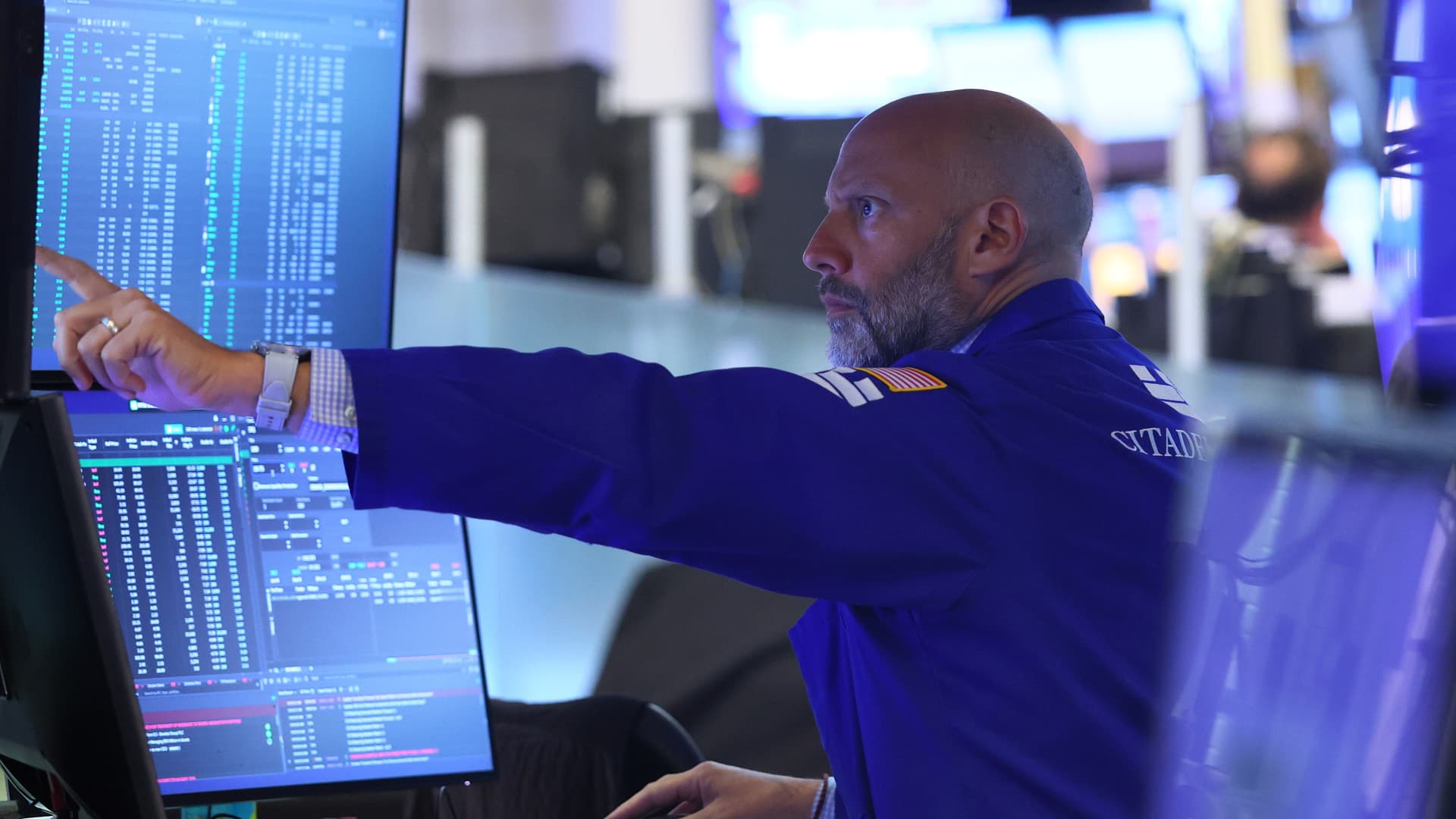Retail investors’ fingerprints are all over the stock-market rally since the tariff-triggered lows in April with high-flying meme stocks emerging as top performers. Goldman Sachs’ retail favorite basket, consisting of U.S. equities most popular among the retail community based on flows, hit an all-time high on Wednesday, overtaking the previous peak from the infamous GameStop trading mania of spring 2021. “Institutions have been the emotional ones, while retail investors have consistently added,” Mark Hackett, chief market strategist at Nationwide, told CNBC. “This has become something of a self-fulfilling prophesy, as the more that buying of dips has worked engrains the culture more, plus institutions are confused and frustrated, making shorting more difficult.” It’s not the original meme stocks like GameStop and AMC that are making a splash this time. Rental car company Avis Budget Group skyrocketed 123% in the second quarter and is up again by 12% in July. Autonomous tech firm Aeva Technologies popped a whopping 440% from April to June. “The market as we see it has increasingly become ‘GameStopified.’ The resilience of the retail [investor] cannot be discounted,” said James Cakmak, Clockwise Capital CIO, on CNBC’s “The Exchange.” “I think fund managers have to reevaluate the way they think about the market, valuations and momentum.” Robinhood surged 125% in the second quarter, while Coinbase more than doubled in price during the same period. The duo are in Bespoke Investment Group’s retail risk appetite basket, which also reached a record high Wednesday. “We’ve been keeping an eye on some proxies of retail sentiment as the market has surged towards and through all-time highs over the last month despite negative catalysts like trade,” Bespoke said in a note to clients. “This certainly looks like a blow-off top for risk-seeking investor sentiment!” A “blow-off top” is a chart pattern that often signals the end of a strong uptrend. Retail investors remain on a buying spree, while big Wall Street players such as hedge funds have been sitting it out throughout this year’s market turmoil, according to JPMorgan data. Smaller investors have injected $270 billion in net inflows into equity funds so far this year, the bank said. If buying power from this cohort remains robust, it could continue carrying the market in the second half of the year. “Led by retail investors, we envisage an equity buying flow of close to $500bn for the remainder of the year which would be enough to propagate equities by another 5%-10% into year end,” JPMorgan strategists said in a note to clients.





